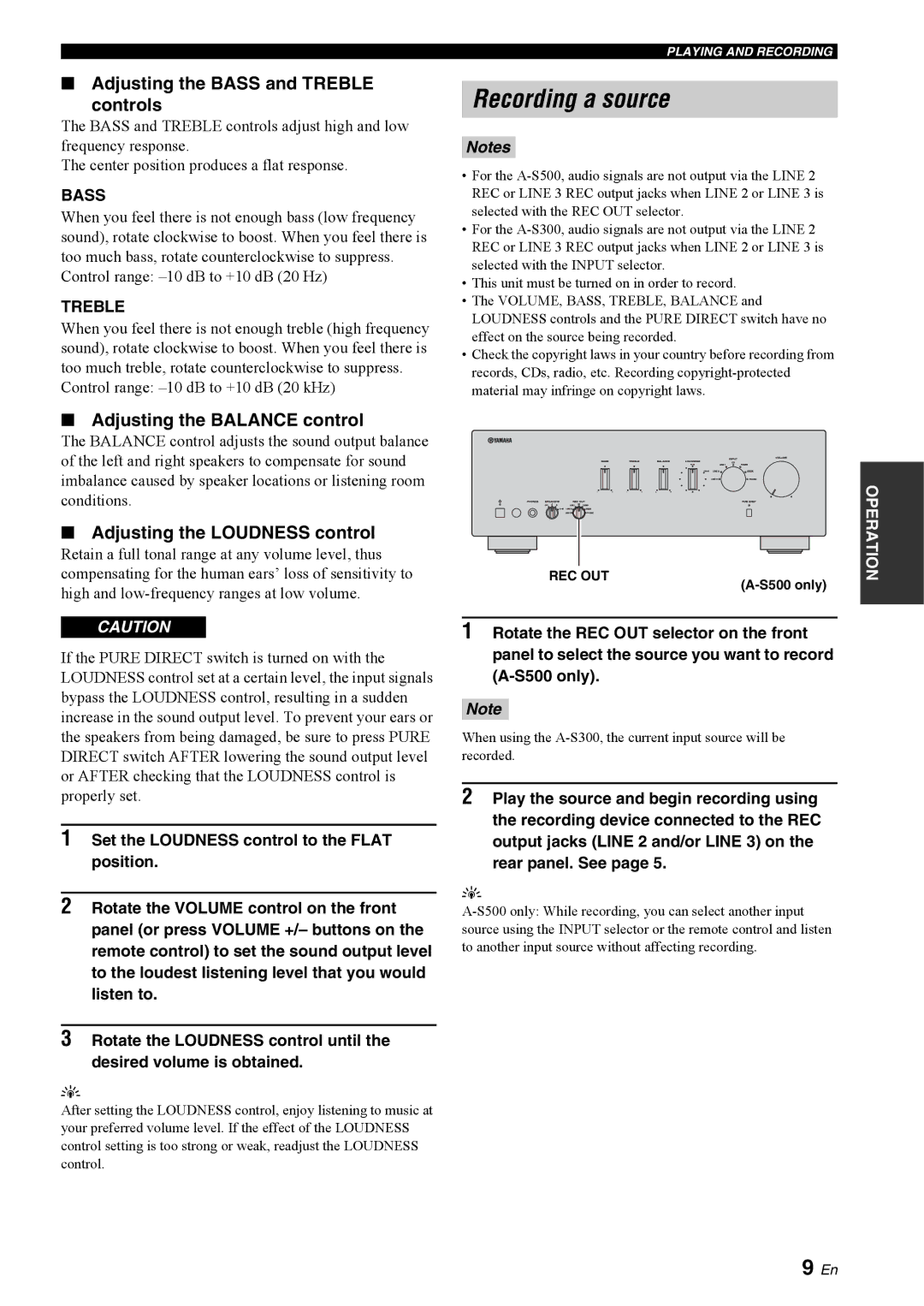
■Adjusting the BASS and TREBLE
controls
The BASS and TREBLE controls adjust high and low frequency response.
The center position produces a flat response.
BASS
When you feel there is not enough bass (low frequency sound), rotate clockwise to boost. When you feel there is too much bass, rotate counterclockwise to suppress. Control range:
TREBLE
When you feel there is not enough treble (high frequency sound), rotate clockwise to boost. When you feel there is too much treble, rotate counterclockwise to suppress.
Control range:
■Adjusting the BALANCE control
The BALANCE control adjusts the sound output balance of the left and right speakers to compensate for sound imbalance caused by speaker locations or listening room conditions.
■Adjusting the LOUDNESS control
Retain a full tonal range at any volume level, thus compensating for the human ears’ loss of sensitivity to high and
CAUTION
If the PURE DIRECT switch is turned on with the LOUDNESS control set at a certain level, the input signals bypass the LOUDNESS control, resulting in a sudden increase in the sound output level. To prevent your ears or the speakers from being damaged, be sure to press PURE DIRECT switch AFTER lowering the sound output level or AFTER checking that the LOUDNESS control is properly set.
1Set the LOUDNESS control to the FLAT position.
2Rotate the VOLUME control on the front panel (or press VOLUME +/– buttons on the remote control) to set the sound output level to the loudest listening level that you would listen to.
3Rotate the LOUDNESS control until the desired volume is obtained.
y
After setting the LOUDNESS control, enjoy listening to music at your preferred volume level. If the effect of the LOUDNESS control setting is too strong or weak, readjust the LOUDNESS control.
PLAYING AND RECORDING
Recording a source
Notes
•For the
•For the
•This unit must be turned on in order to record.
•The VOLUME, BASS, TREBLE, BALANCE and LOUDNESS controls and the PURE DIRECT switch have no effect on the source being recorded.
•Check the copyright laws in your country before recording from records, CDs, radio, etc. Recording
REC OUT
1Rotate the REC OUT selector on the front panel to select the source you want to record
Note
When using the
2Play the source and begin recording using the recording device connected to the REC output jacks (LINE 2 and/or LINE 3) on the rear panel. See page 5.
y
OPERATION
9 En
